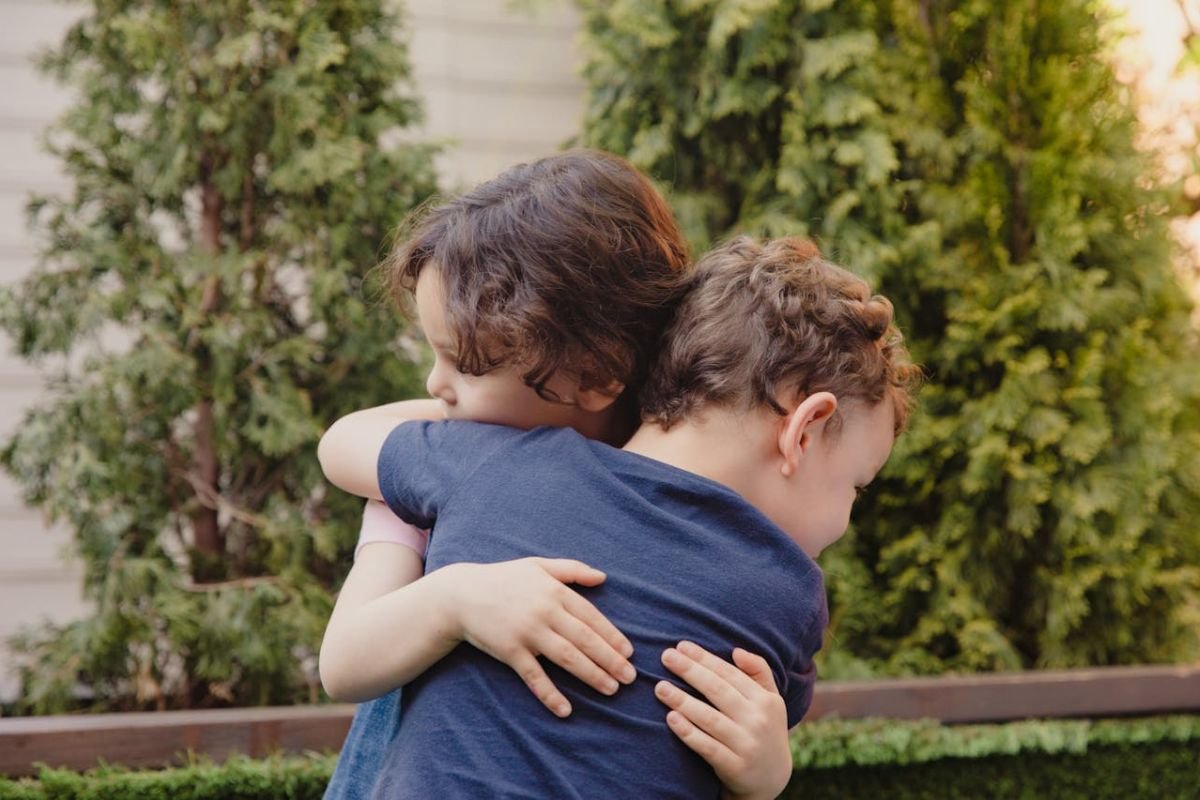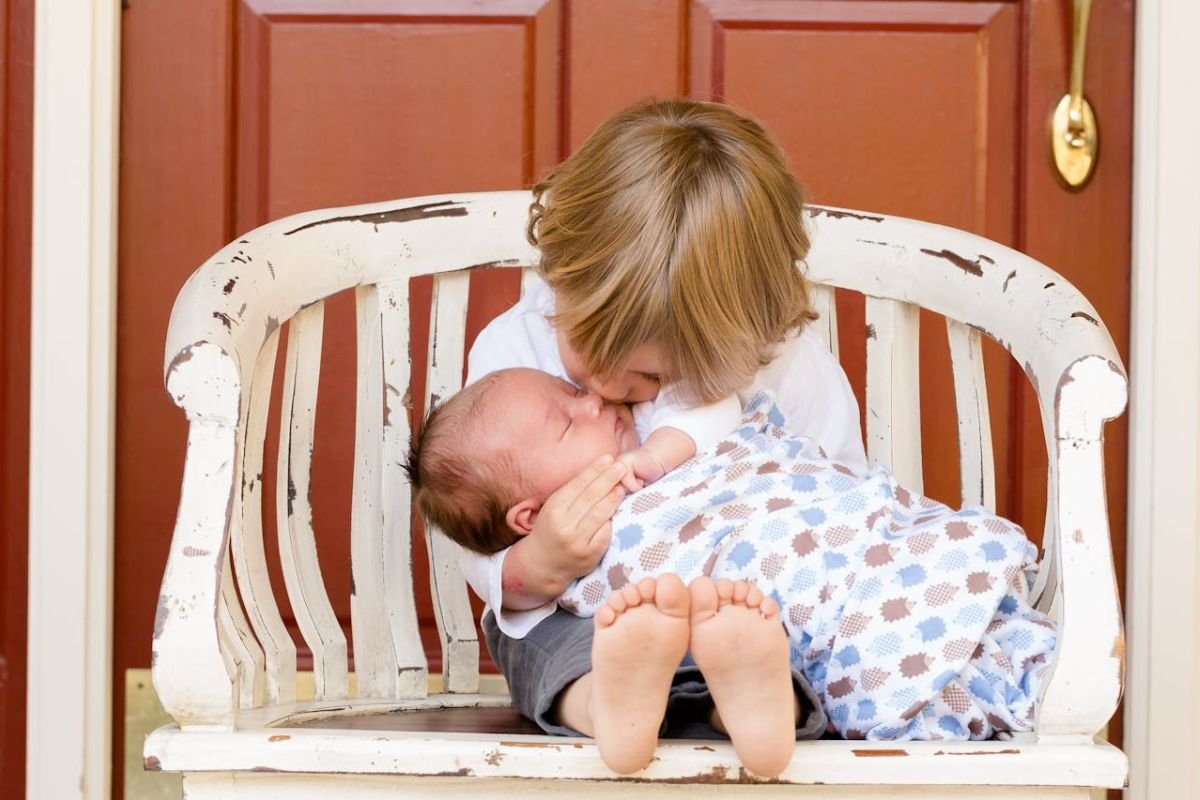Why Sibling Bonds Gradually Fade – and How to Cope with It

10 DECEMBER 2024
Sibling relationships are among the most enduring connections in our lives. They tie us to our past through shared memories and family traditions. Yet as life unfolds, these bonds often shift, becoming less central than they once were.
This article explores why sibling bonds gradually fade and offers thoughtful ways to cope with these changes, helping you navigate this inevitable evolution with grace and understanding.
What Is Middle Age?
Have you ever stopped to wonder, “Have I reached middle age?” What does this chapter of life truly signify?
Middle age represents the crossroads between adulthood and old age, a time of reflection, change, and often, redefinition. Decades ago, it was thought to begin as early as one’s 30s. However, as life expectancies have risen, so too has the perception of when this stage begins, now typically closer to age 40.
Even today, middle age isn’t defined by a single rule. Its boundaries often differ across cultures, societies, and individual experiences. That said, the range most commonly accepted is between 40 and 65, a period where many re-evaluate life’s priorities, including their family connections.
New Priorities and Overlooked Connections
As middle age unfolds, life often feels like a juggling act. Spouses, children, in-laws, career goals, mortgages, loans, and even the family pet all compete for your attention. Each plays an essential role in creating stability, both in your home and beyond.
Amid these swirling priorities, another relationship may quietly slip into the shadows, the bond with your siblings. These were the people who shared your childhood adventures and stood beside you through growing pains. But as life grows more demanding, that once-vital connection can start to fade, unintentionally pushed into the background.
The Inevitable Changes Over Time

Change, much like the passage of time, is unstoppable. It creeps in gradually, shaping our lives before we even realise it.
In young adulthood, the shifts in sibling relationships are obvious: moving out of the family home, focusing on building careers, and carving out new lives. Naturally, the time spent together shrinks, and the rhythm of your connection changes almost overnight.
But as you enter middle age, these shifts are more subtle. The calls grow less frequent. Holidays become rushed gatherings rather than cherished reunions. One day, you pause and notice how distant things feel. The shared laughter, the inside jokes, and the once-effortless warmth seem like memories from another lifetime.
This realisation can be unsettling, but it doesn’t have to be a source of regret. It’s a reminder that relationships evolve, just as we do. Accepting this new reality doesn’t mean giving up. It means finding ways to nurture what remains and embracing the beauty of the journey.
Life’s Truths Revealed in Middle Age
Middle age has a way of offering clarity, a clearer lens that strips away the innocence of youth and replaces it with an honest understanding of life’s fragile beauty.
As children, we believed in forever. We thought our parents would always be by our side, and our siblings would remain as close as they were during childhood, untouched by time. Yet as the years pass, these comforting beliefs shift. Life’s truths, though inevitable, can feel stark when they unfold.
Our parents grow older, their presence becoming more fragile until one day, they leave us. Our siblings, once our constant companions, begin to drift away, not because of any fault or intention, but because life takes them down paths filled with careers, families, and responsibilities of their own.
When we understand how our closest relationships define who we become, we see that sibling bonds are not disappearing. They are simply repositioning within life’s larger design.
It’s a bittersweet reality, but it’s not a tragedy. Time doesn’t pause, nor does it grant exemptions. Instead, it gently reminds us to hold tightly to the moments we have and to treasure the connections that remain, even as they change.
Shifting Priorities in Adulthood
As you and your siblings establish families and settle into your adult lives, the rhythm of your relationships naturally changes. The once-easy bond from childhood competes with careers, parenting, and the endless to-do lists of daily life.
Even with the best intentions, maintaining those early connections can feel nearly impossible. It’s not a matter of love or care. It’s the inevitable result of life pulling each of you in different directions. Most adults eventually come to accept this, recognising that the ties of childhood are not forgotten but simply evolve.
If you’ve reached middle age and noticed a growing distance between you and your siblings, don’t despair. Instead, prepare yourself to take these three thoughtful steps:
- Accept the gradual distance.
- Understand the causes behind it.
- Rely on self-improvement as your strongest support.
Let’s explore these in more detail.
One – Accepting the Gradual Distance

The first step is to adjust your mindset and embrace the natural drift that often comes with time. Life doesn’t stand still, and neither do relationships.
Why do people drift apart? It’s rarely intentional. Often, it happens because life’s different paths pull us in different directions. Each of us grows in response to our environments, careers, and priorities, leading to values and perspectives that may no longer align perfectly.
You might find yourself sharing your worries or joys, only to realise your sibling doesn’t fully empathise. But it’s important to remember, it’s not a lack of love. They’re navigating their own world, balancing their own dreams and challenges, just as you are.
Even siblings who once felt like extensions of ourselves may start to feel like acquaintances over time. It’s a heartfelt truth, but it doesn’t have to signal the end of the relationship. Instead, it offers a chance to meet each other anew and build a connection that reflects who you’ve become today.
Embracing New Priorities and Responsibilities
As life demands more of us, the days of frequent sibling catch-ups, quick calls to share good news or spontaneous visits just to chat, start to fade into the background. Packed schedules and growing obligations leave little time for the bonds that once came so effortlessly.
But this shift, while inevitable, is often a sign of something good: progress. If your siblings are healthy, content, and thriving in their own lives, this distance may simply reflect the success of their personal journeys.
Acceptance becomes a powerful tool for navigating these changes with grace. It allows you to appreciate this new chapter, where love remains, even if it looks different than before. Family bonds evolve, adapting to life’s ever-changing priorities, but they continue to endure in ways both subtle and meaningful.
Embracing Independence and Letting Go
As adults, encountering a sibling’s perceived “indifference” or “lack of warmth” doesn’t have to weigh you down. Instead, it’s an opportunity to find peace by letting relationships evolve naturally.
A Zen proverb beautifully captures this mindset:
“In this world, meeting or parting is destiny.
Ups and downs are all part of the journey.
Why cling onto sorrow, when peace awaits on the morrow?”
This wisdom reminds us to embrace life’s journey with grace. Each connection, even as it changes, holds meaning.
Rather than dwelling on grief, concern, or regret, focus on offering kindness, understanding, and a bit of space. Letting go, when the time comes, can be an act of love. And when life offers a chance to reconnect, seize it with an open heart.
With time and patience, family bonds have a remarkable ability to mend and transform. Misunderstandings fade, leaving room for deeper growth and renewed appreciation.
Two – Understanding the Causes Behind Growing Distance

The Law of Cause and Effect
Every relationship is shaped by cause and effect, and sibling bonds are no exception. When once-close siblings grow cold or distant, there’s often an underlying reason. Sometimes that distance traces back to unresolved family roles or the burden of emotional over-responsibility carried from childhood into adulthood. The connections we treasure are often influenced by unseen pressures, unspoken tensions, or the natural shifts that come with time.
The Hidden Roots of Distance
This growing distance doesn’t appear overnight. It can often be traced back to specific events, forgotten arguments, or feelings that were never addressed. When one sibling chooses silence and the other avoids asking, those small cracks can expand, and slowly deepen. Over time, these fractures can feel insurmountable, even for relationships bound by blood.
Choosing Open Communication
But these cracks don’t have to become permanent. Open communication offers a path to healing. Sometimes, all it takes is a heartfelt conversation, a sincere apology, or the courage to ask, “What’s wrong?” These small acts of vulnerability can bridge even the widest gaps, allowing relationships to flourish anew.
While every connection has its challenges, choosing understanding and effort can keep sibling bonds strong, no matter the years or miles that separate you.
The Power of Communication in Maintaining Family Bonds
Unspoken Words and Unshared Feelings
Have you ever noticed how the smallest misunderstandings can grow into something bigger over time? Often, it’s not because of a major incident but because of words we didn’t say or emotions we kept hidden. Even with our closest loved ones, silence can create invisible barriers that are hard to break down later.
Practices That Strengthen Connection
Maintaining strong family bonds takes more than love, it requires effort. Timely conversations can clear up confusion before it becomes conflict. Willingness to yield, knowing when to let go of being “right” can turn potential arguments into moments of peace. Addressing the real causes behind tension, rather than ignoring them, allows relationships to heal. And taking responsibility for our actions, even when it’s hard, shows a level of care that strengthens trust.
Growing Closer Through Intentional Care
Family bonds, much like a garden, flourish when we tend to them with patience and understanding. Small grievances don’t have to drive us apart if we nurture our relationships with intention. In doing so, we preserve the closeness that gives life its deepest meaning, a closeness worth protecting, no matter what life brings.
Cherishing Sibling Bonds as Life’s Precious Gifts

A Treasure Beyond Measure
Sibling bonds are among life’s most enduring treasures, reminders of where we’ve come from and who shared our earliest chapters. Though sometimes taken for granted, these connections carry a depth that few other relationships can replicate.
A Legacy of Love
Siblings are a gift from our parents, offering an anchor to the past and a bridge to the future. When our parents are no longer with us, these bonds become even more significant, serving as a living reminder of family, shared experiences, and mutual care.
Strengthening the Connection
To honour these bonds, approach your relationships with sincerity and mutual respect. Engage in genuine, heartfelt exchanges, whether through a call, a visit, or even a simple message. These small gestures of care will naturally strengthen your connection. Over time, these efforts create a deep reservoir of love and understanding, making sibling relationships a lasting source of joy and support.
Three – Relying on Self-Improvement as Your Strongest Support
The Power of Self-Reliance
At some point, it becomes clear that while relationships enrich our lives, the most reliable foundation we have is our own inner strength.
While relationships can enrich our lives, true stability comes from within. A timeless piece of wisdom puts it beautifully: “Do not be overly delighted by external gains, nor deeply saddened by personal losses.” This perspective encourages resilience and inner peace, no matter what life brings.
Navigating Sibling Dynamics
Sibling relationships can grow complicated in middle age. Successes and struggles alike may spark comparisons or feelings of judgment. But these reactions, though natural, shouldn’t define the bond.
Every sibling walks their own path, shaped by unique experiences, challenges, and priorities. Just as you navigate your own highs and lows, they are likely dealing with personal struggles you may never see.
Finding Empathy and Balance
Instead of holding onto expectations for how siblings should act, embrace an attitude of empathy and acceptance. Respect their journey, even if it differs from your own. When you release the need for validation or equal commitment, you’ll find greater peace in the relationship, and in yourself.
Building Self-Reliance and Inner Strength

Shifting the Focus to Yourself
When sibling relationships feel distant or indifferent, it’s natural to feel hurt. But rather than dwelling on their coldness, consider shifting your focus inward. Prioritise your own growth, recognising that the most reliable source of support is often within yourself.
The Power of Self-Sufficiency
Strength comes from knowing you can rely on your own abilities, even in the face of challenges. As you cultivate your skills and provide for yourself and your family, you’ll find that external approval or affection becomes less significant.
Earning Respect Through Action
Becoming someone worthy of respect isn’t about proving yourself to others, it’s about living with integrity, determination, and a commitment to growth. When your achievements and resilience speak for themselves, you’ll naturally command respect without needing to seek it.
Fulfilment Through Growth
The day you reach your fullest potential isn’t just a milestone, it’s a moment of liberation. By relying on your own strength, you free yourself from the weight of unmet expectations and instead embrace the joy of self-made success.
Wrapping Up – Shifting Focus from Expectations to Personal Growth
Letting Go of Expectations
Sibling warmth and affection are undeniably meaningful, yet they are not the sole ingredients for a fulfilling life. Disappointment often stems from expecting genuine support or emotional closeness, only to be met with responses that feel lukewarm. While this can sting at first, over time, these disappointments may lose their weight, becoming just another part of the grand scheme of life.
Embracing a Lighter Perspective
By middle age, it becomes essential to release the weight we attach to how family bonds “should” look. Encounters and farewells alike become easier when approached with a sense of acceptance rather than attachment. This perspective allows us to appreciate relationships for what they are, without measuring them against the past.
Transforming Disappointment Into Growth
When you let go of the need for validation or support from family, you create space for something far more enriching, personal growth. Instead of relying on others for warmth or fulfilment, direct that energy inward. This journey of self-empowerment can be transformative, shifting your focus from external sources of happiness to a more sustainable, internal strength.



